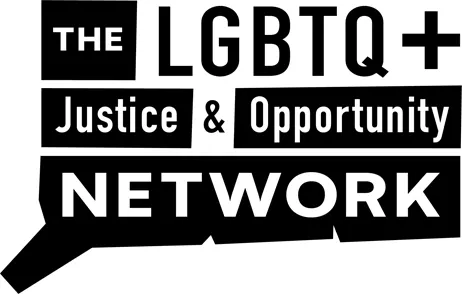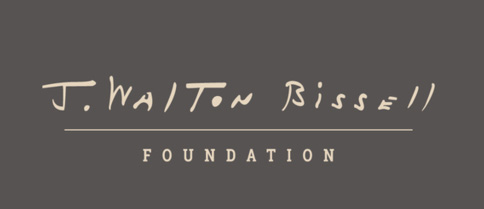History
A (Brief) History of Out Film CT
AlteRnaTiveS (as it was originally known) was founded in 1987 by Bill Mann as a gay and lesbian cultural organization in Hartford, against a backdrop of LGBT social activism, inspired in part by the death of Richard Reihl and the trial of his killers. With Terri Reid as co-chair, the organization explored a variety of different activities including theater, film, a gay history project and a literary journal, Invert, which produced four issues.
During the organization’s busy early years, the first Film Festival, co-directed by Terri Reid and Paul Brenner, was held in June of 1988 at Cinestudio. Because of a lack of publicity and challenges in finding an audience for such an event, the first Festival was not a big success. This was, after all, Connecticut’s first-ever Film Festival, and at the time, a gay & lesbian event such as this was quite unusual. Also, the films themselves tended toward the experimental and gloomy (Kenneth Anger and lesbian vampires). These nascent years saw the committee struggle with programming issues and attracting an audience. By the fourth year attendance was the poorest yet, and the Festival was in debt.
1992 marked a turning point, when, under the new leadership of Tyler Polhemus, several changes were made to reinvigorate the Festival, including focusing on Festival publicity. That year brought Quentin Crisp to the opening night for the screening of The Naked Civil Servant. Having such a queer icon come to Hartford was a real coup. During Tyler’s tenure as director, the Festival was also extended from one weekend to two. Hartford native Jennifer Miller came back to her hometown for the screening of Juggling Gender to discuss her life as a juggler and gender rebel. In 1994, the Festival presented a rare screening of Viktor und Viktoria, the 1930’s film that was the basis for Victor and Victoria.
In 1994 Jason Plourde and Suzanne Shayer accepted the nomination as co-directors. That year saw the sold out Connecticut premiere of The Incredibly True Adventure of Two Girls in Love fresh from it’s Sundance success with director Maria Maggenti in attendance. The iconic lesbian documentarian Barbara Hammer visited Cinestudio to discuss her work and time in South Africa the same year. Another first in 1995 was a program devoted to the gay deaf community, with a sign language interpreter featured.
In 1997 Festival leadership changed once again as Dan Millett stepped in as director. That year the Festival was extended from five days to its current nine days of programming. Opening night brought actor Guinevere Turner (The L Word, American Psycho) to Hartford for her film, The Watermelon Woman. The closing night featured It’s in the Water with director Kelli Herd in attendance.
As the Festival’s finances stabilized, Alternatives was able to host its first benefit event for another organization; 1997’s closing night raised funds for AIDS Project Hartford. Since then, the Festival has hosted many benefits for several other community organizations, such as Cinestudio, the Hartford Gay & Lesbian Health Collective and the Hartford Gay & Lesbian Community Center.
In October 1999, Alternatives began collaborating with the Trinity College gay-straight student organization EROS (Encouraging Respect of all Sexualities) to present the EROS Film Festival. This event held every fall brings more queer films to Hartford with an emphasis on youth, history and classic films.
In 2003 the Connecticut Gay & Lesbian Film Festival donated its historic records and papers to the library archives at Central Connecticut State University.
In May 2007, the Film Festival was awarded the “Outstanding Project Award” by the Connecticut Commission on Culture & Tourism for its efforts to improve and enhance the arts, history, film and tourism in Connecticut. In December of the same year, the name of the organization was officially changed from “Alternatives: The Hartford Gay and Lesbian Cultural Organization” to “Out Film CT” to better reflect the focus on film events. In addition, the reins of Festival Director were passed to Shane Engstrom, who has worked with the festival committee to further expand and enrich the festival.
In 2008, the festival hosted a record-breaking 20 filmmakers, cast and crew members from eight films, including Tom Gustafson, Cory Krueckeberg, Kira Kelly and Nathaniel David Becker of Were the World Mine, and David Oliveras, Kyle Clare and Tyler Olson of Watercolors. The festival was also honored to host its first world premiere of a feature film with the screening of Watercolors.
In March 2012, Out Film CT had the honor of receiving the New Haven Pride Center’s Dorothy Award in recognition of 25 years of service to the LGBTQ community. That year, the festival expanded theater venues to include the Closing Night screenings and party at the Connecticut Science Center and the Wadsworth Atheneum Museum of Art.
In 2013, Laura Williams stepped into the co-director’s role to bolster the leadership team for the ever-growing festival, and is presently serving on the board as the Director of Community Outreach. 2014 saw the name of the festival changed to the Connecticut “LGBT” Film Festival, (and in 2019 the “Q” was added!) to better reflect the broad inclusiveness of the organization.
Out Film CT hosted the International premiere of the film Queen of Amsterdam in 2014 and featured the film Boulevard, one of Robin Williams’ last films in 2015. In 2017, for the 30th annual festival, Out Film CT was able to increase the international impact of the festival by bringing in two international film directors: Jakob Erwa (Center of my World) and Joe Ahearne (B&B). In addition that year the festival hosted the US premiere of the film Hello Again and displayed an exhibit in the theater lobby called “Artistic Expressions of Transgender Youth” featuring artwork from Tony Ferraiolo’s transgender youth program.
2020 was the year of the COVID-19 pandemic, so the festival was postponed from June to October, and the festival became “virtual” for the first time in its history, with a few “drive-in” screenings at the Manchester Parkade theater. Even though there was a return to Cinestudio in June of 2021 and 2022, the festival remained a “hybrid” event with virtual and in-person screenings. Opening, closing and centerpiece parties started back up in 2022. A decision was made to move the 2023 festival from June to October (LGBTQ history month), but it was moved back to June in 2024.
 As presenter of Connecticut’s longest-running film festival, the organizers are committed to bringing outstanding gay, lesbian, bisexual, transgender, and queer film to our New England community.
As presenter of Connecticut’s longest-running film festival, the organizers are committed to bringing outstanding gay, lesbian, bisexual, transgender, and queer film to our New England community.
–Shane Engstrom, Festival Director, 2008-Present



